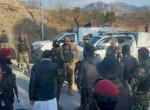The political crisis has come to a full circle in Maldives. Last February, when the first democratically-elected president, Mohamed Nasheed, was deposed by a bloodless coup, India did not make any noise. It thought, rightfully so at that point in time, the change of president was an internal matter of Maldives. New Delhi did not mind shaking hands with the new President Mohamed Waheed. Now, exactly after a year, when the former President Nasheed took refuge in the Indian High Commission in Malé on 13 February 2013 fearing arrest, India was forced to involve itself to bring a solution to the ongoing political crisis. A high-profile political leader taking refuge in any of India’s embassies is unprecedented. New Delhi’s dilemma is evident.
India may not be in a position to hand over Nasheed unconditionally to the Maldivian police. In that case, apart from threat to his life, Nasheed is certain to face trail and imprisonment for a long period jeopardising his political career. Preventing Nasheed from contesting presidential elections scheduled on 07 September would undermine the legitimacy of the next government thus perpetuating the political instability. His party – Maldivian Democratic Party (MDP) – has already announced boycotting the polls if Nasheed is debarred from contesting. Blocking a candidate from the largest political party (MDP) is politically unjust and is not in the long-term interest of Maldives. But, if Nasheed decides to move out of the High Commission voluntarily, India would be more than happy to let him go. He cannot stay at the premises indefinitely. During the stay, he is not allowed to turn the High Commission into his political office.
At the same time, it is difficult to sit and do nothing on the issue for long. India is already being accused by some of the pro-government hardline parties like Adhaalath Party for “meddling in the internal affairs of the country” and “for assisting a criminal fleeing from trial”. Nasheed knows India is the only lifeline left for him. And that was the reason why he did not take refuge in any other embassy based in that country. Only India could bring a solution to the present political impasse in the atoll state. A four-member Indian delegation, headed by Harsh Vardhan Shringla, joint secretary in-charge of the Maldives, has visited Malé on 19 February 2013 to “basically engage with all the stakeholders and understand the situation and all the issues involved.” Despite hectic parleys, the stalemate continues. Efforts should be made at the next official level, or, if need be, at the political level.
In doing so, India should not be seen as siding with either of the parties. A fine balancing act is necessary. What should be the way out? The following could be a compromise formula:
- Nasheed should be let out of the High Commission, but with a condition that all frivolous charges should be dropped against him and that he should be allowed to contest the upcoming presidential elections. Any trial against Nasheed should be just, but not politically motivated. Otherwise, the cycle of revenge and counter-revenge is bound to continue causing political instability in the atoll state. The aim is not to indulge in one-upmanship, but to create an appropriate atmosphere for free and fair elections.
- At the same time, Nasheed should not insist on resignation of present incumbent Waheed and institution of a caretaker government. He should fully cooperate for smooth conduct of elections and should gracefully accept the outcome whatever it may be.
- If the MDP’s fear is over free and fair conduct of polls under Waheed, strict international monitoring may be considered. This does not mean interfering, but helping Maldives to stabilise itself politically with a credible democratically-elected government in place.
The present situation is only a small hurdle. If this is overcome successfully, one can undoubtedly witness a stable, peaceful and prosperous Maldives. India cannot afford to have another unstable country in its neighbourhood.
Published Date: 22th February 2013









Post new comment